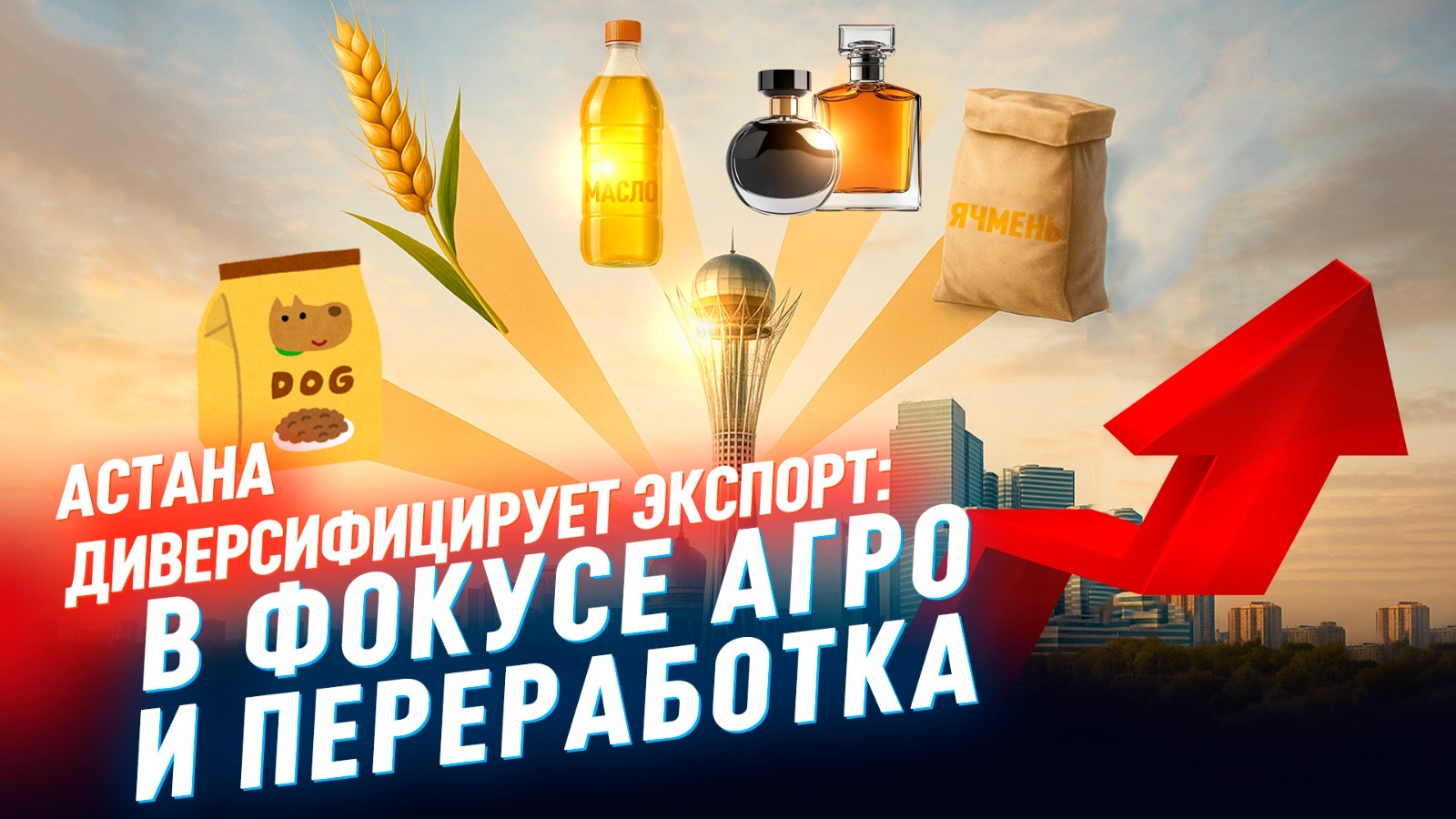According to QazTrade, in the first months of 2025, Astana’s exports amounted to $2.3 billion, while imports increased to $2.5 billion (+5.9%). Despite an overall export decline of 15.5%, the trend shows a gradual shift towards a more diversified trade model for the capital.
What happened to traditional exports?
The drop is mainly due to fluctuations in raw material supplies: uranium exports fell by 65.8% (−$500 million), oil exports by 20%, and there was also a decrease in exports of ferrous metal scrap, agricultural machinery, and petroleum products.
But there are also strong growth points:
-
Wheat — 2.3× growth (up to $223 million)
-
Natural gas — +72.7% (up to $260 million)
-
Sunflower oil — increased 3.2×
-
Significant growth was also recorded in exports of barley, flax seeds, animal feed, and even perfumes.
QazTrade’s comment:
“The decline in exports from Astana is mainly linked to volatility in raw material supplies, especially uranium and oil. At the same time, we see positive signals — exports of agricultural and processed goods are growing. This confirms that the capital is beginning to form a more sustainable and diversified export model.”
Top 3 trade partners of Astana:
-
Russia — $1.36 billion
-
China — $1.05 billion
-
Italy — $720 million
What about imports?
“Imports to Astana grew by nearly 6% in the first four months of 2025, reaching $2.5 billion. This is driven by active infrastructure development and demand for technological equipment. There has been an increase in imports of gas products, computing equipment, construction and road machinery — all reflecting the growth of the capital’s industrial and construction sectors,” QazTrade explained.





